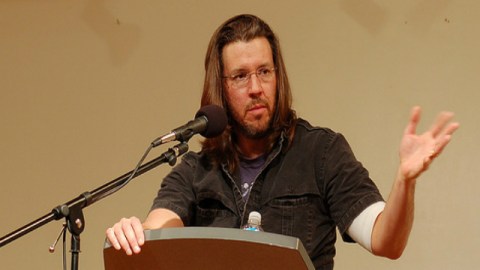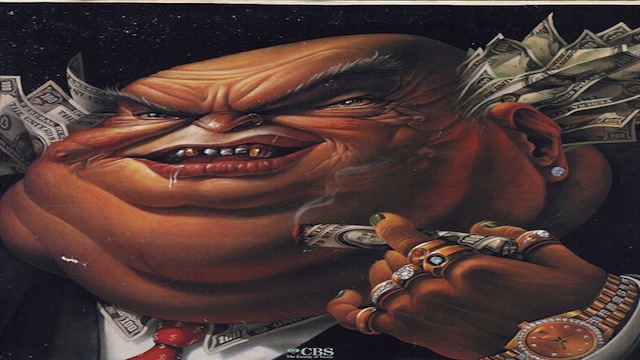David Foster Wallace, English Teacher

Oh how I wish David Foster Wallace had been my English professor. The University of Texas has recently posted the syllabus from the English 102 class he taught at Pomona College. It’s immediately obvious that he took the job, and his students, utterly seriously. Interesting, too, is his choice of texts – the only book on the syllabus that’s (sort of) in the Canon is C.S. Lewis’ children’s classic The Lion, the Witch, and the Wardrobe. It seems that he found “commercial fiction” a better tool than, say, Shakespeare to open students’ minds to deeper questions about literature.
There is no doubt in my mind that the students in his class learned more while reading and writing about Stephen King’s Carrie and Jackie Collins’ Rock Star than most people learn in an entire undergrad lit major.
Most moving, though, are the comments from his own students, which paint a picture of a teacher who in spite of his towering fame never once referred to his own novels in class or gave a dedicated student less than his total attention. It’s a powerful example of humility in our aggressively self-promotional age.
From DFW’s syllabus
“English 102 aims to show you some ways to read fiction more deeply, to come up with more interesting insights on how pieces of fiction work, to have informed, intelligent reasons for liking or disliking a piece of fiction, and to write – clearly, persuasively, and above all interestingly – about stuff you’ve read.
For the most part, we’ll be reading what’s considered popular or commercial fiction . . . If the course works, we’ll end up being able to locate some rather sophisticated techniques and/or themes lurking below the surface of novels that, on a quick read on airplane or beach, look like nothing but entertainment, all surface.”
One of Wallace’s students, quoted in Pomona College’s magazine after the author’s suicide in 2008
On the first day of class, Dave wore a cut-off Star Wars sweatshirt and a bandana to tie back his greasy hair. His spectacles gleamed. If I had been expecting the wunderkind ofInfinite Jest, my idealized visions crumbled as I watched him spit a stream of black tobacco spittle into a Slurpee cup. He looked less like a militant grammarian than a transient who had accidentally wandered into the English Department. Previous students of Dave Wallace had warned me of his tongue-lashings, his obsessive precision with language, his voluminous footnotes. I had arrived with my armor on, ready for a writerly battle with a giant of literature. But this guy, frankly, looked like a goofball.
True, there was something intimidating about Dave. But it was not his obvious genius, his reputation or his awful clothes. He was easy, approachable, often hilarious. It was the work that daunted. His workshops required intensive critical thinking. He demanded allegiance— not to himself, nor to the class, but to the language itself. We served the words. To fail the language, through a half-hearted peer critique or an overlooked comma, was to fail the writers we wished to become.
He never failed us. Every week he returned our stories with tomes of comments, meticulously organized and footnoted, each page a bramble of red pen. A five-page story could receive five pages of notes back, single space, 10 pt. font. At first I thought these letters spoke to an obsession with perfection. Later, I began to see that they only reflected the depth of Dave’s heart. To each story he gave the energy that he gave his own writing. His attention stemmed from the profound respect he held for his students.
Dave gave this same care to students during office hours, after hours, between hours, when he generously talked us through our paragraphs, our anxiety, and our self-doubt, blinking rapidly from behind a pile of usage dictionaries. The line often ran down the hall.
One day I told him, frustrated, that I would stop writing fiction. My stories were not postmodern or hip. I expected a lecture on style. Instead, he told me to relax. Strong writers are not merely good with words, he said; they are deeply aware of themselves. The greats have stopped pretending to write like someone else. “You’re best when you trust yourself,” he said.





